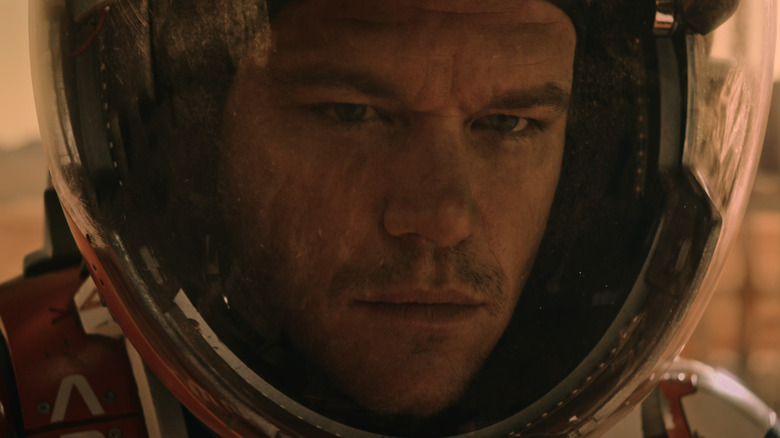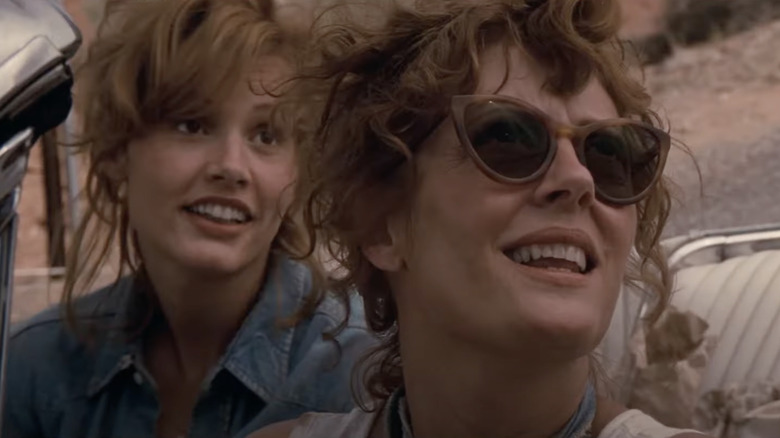Thelma & Louise Taught Ridley Scott How To Handle The Martian
I know it's fun to goof about how Ridley Scott's space survival movie "The Martian" won Best Picture in the Musical or Comedy category at the 2016 Golden Globes, as almost no one would classify it as either of those genres. It obviously should have been in the drama category, but the Globes are going to Globes and do some wild stuff. That being said, there is a glimmer of something there for why enough people might consider it as a comedy. "The Martian" is fun.
Ridley Scott may have made his name on fairly dour films like "Alien" and "Blade Runner," but when the man wants to crank up the energy, he can do so with the best of them. Even when a piece of material seems like it could be dour, like Scott's unfairly dismissed "The Last Duel," he finds a way to inject a ton of life and humor when he wants to do so. So "The Martian" may not be an out-and-out comedy, but that doesn't mean it isn't a crowd-pleasing, purely entertaining ride that has plenty of light=hearted moments.
It took a little while before Scott was able to successfully thread that needle. If the screenplay for "The Martian" came across his desk in the days of "Blade Runner" and "Legend," maybe things would not have gone as swimmingly. He needed the right experience to work up to it, mixing the intense with the exciting. That melding came in 1991 with a film that earned him his first Oscar nomination for Best Director: "Thelma and Louise."
'You reach more people'
"Thelma & Louise," starring the Oscar-nominated pair Geena Davis and Susan Sarandon, centers on these two women escaping their domineering husbands for a short vacation, and while they're away, Davis' Thelma is sexually assaulted by a man outside a bar who Sarandon's Louise murders. This setup does not sound like the makings of a fun, on-the-run chase movie, but that's exactly what it is. Instead of wallowing in the pain of what these women experienced, this is their ride of freedom. It's a tough tonal balance, but Ridley Scott nails it. In 2015, he spoke with Den of Geek about how "Thelma & Louise" served as a great starting point for how to handle "The Martian" so many years later:
"I can do dark things, but I'm pretty cheerful. That's why I was able to do 'Thelma [And Louise]' – I think the writer expected something different. Something more serious. I read it – same material, I didn't alter it or anything – but I just thought it was really funny. Comical. But by doing that, you reach more people. If you do dark and serious, you lose 50 percent. I felt it was a film that needed to be seen. Get out there. We got a Time Magazine cover, which I thought was very interesting. Way more reaction than I was expecting, because I was taking the problems of male-female, feminization, as normal, natural, I'd never even thought about it."
The story of "The Martian" could be a depressing one. An astronaut is stranded on another planet with limited supplies for survival. He could just be wasting away. But Ridley Scott blends that personal struggle so well with the demands of a Hollywood sci-fi blockbuster that make it just really fun. It's still not a comedy, but it's a good time nonetheless.

